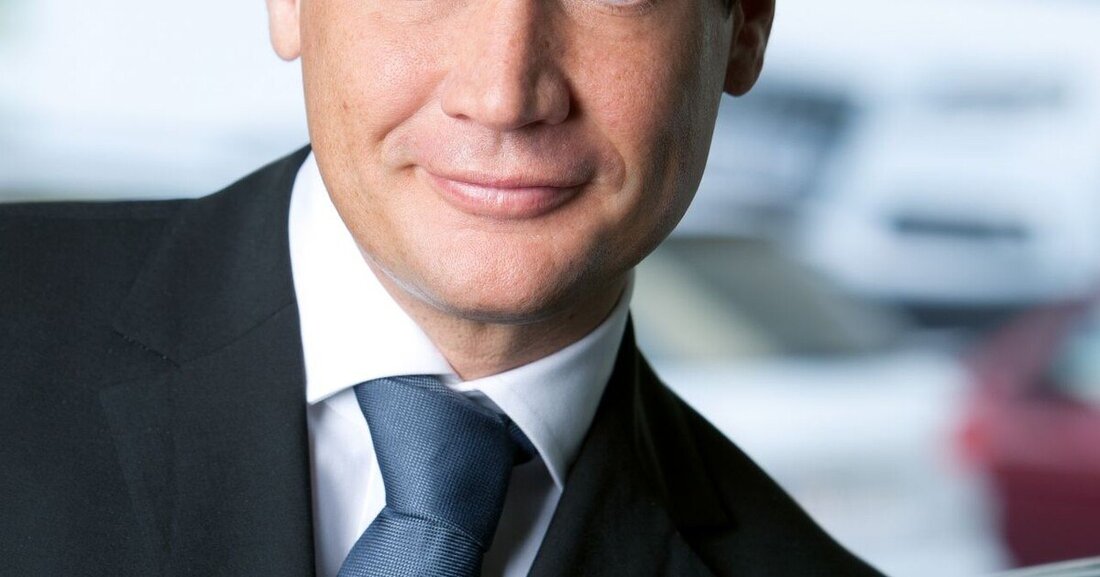Hutschinski (VÖK): There is a risk of conflagration in the vehicle trade”
The Association of Austrian Motor Vehicle Companies (VÖK) sees Austrian motor vehicle companies in greatest danger due to the “COVID-19 shutdown”.

Hutschinski (VÖK): There is a risk of conflagration in the vehicle trade”
“We are on the verge of a conflagration, especially among vehicle dealers in Austria!” warns the chairman of the VÖK, Stefan Hutschinski, very urgently. “The vehicle trade must be viewed very differently from other sectors in some respects and is therefore particularly at risk in such a time of crisis.” The industry's products are high-priced, and each dealer moves several million euros with the smallest of margins. Accordingly, it is often very difficult for traders to gain understanding from their banks, as they would see high risks with such sums.
For the aid programs launched by the government, such as the Corona Aid Fund (guarantees for working capital loans, fixed cost subsidies), the condition is that the URG key figures (equity ratio and debt repayment period) fit in the balance sheet. The high investment requirements, a high proportion of borrowed capital and very high amounts of inventory from vehicle dealers (new and used cars) also ensure that the balance sheet figures - which are now so necessary - are unattainable for many dealers. Without these necessary financial resources from the Corona Aid Fund, these companies are now threatened with bankruptcy through no fault of their own. For retailers where these balance sheet figures are in order, another problem arises. The non-repayable fixed cost subsidy from the Corona Aid Fund, for various costs such as business premises rent, insurance premiums, license costs, payments for electricity/gas/telecommunications, interest expenses and other operationally necessary contractual payment obligations, is staggered in amount based on the decline in sales in the period from March 15th to the end of the COVID-19 measures.
"However, many vehicle dealers will only be hit by the large drop in sales caused by the 'COVID-19 shutdown' months later, as new cars usually have a delivery time of 2-3 months - depending on the manufacturer. This drop in sales therefore falls out of the calculation period under the existing regulation of the Corona aid fund. In the hardship fund, which is largely intended for one-person entrepreneurs, this regulation was already satisfactorily resolved last week," explains Hutschinsky. "Many companies in Austria will face another problem in about a year, with the 2020 balance sheet. Due to the 'Corona Year', many companies may be subject to a URG procedure (reorganization procedure) through no fault of their own. Here, too, the applicable laws will need to be adjusted."
Numerous retailers have already contacted the brand associations and the VÖK about these two critical issues and would see their existence threatened. Many would also report that the banks are uninformed and uncooperative. The VÖK is currently conducting an anonymous online survey to clarify the scope of the entire problem.
The following specific demands are made by the VÖK/vehicle trade:
Redesign or suspend the criteria for the allocation of the Corona Aid Fund (URG key figures) for the vehicle trade
Simplify and accelerate processing at the banks - do not require additional security from the - mostly fully financed - companies
A choice for the calculation period for the Corona aid fund / fixed cost subsidy - e.g. similar to the regulation of the hardship fund
Due to many impending URG proceedings after the 2020 balance sheet due to the “Corona Year” – early adjustment of the legal situation or suspension of these proceedings
Economic stimulus through an eco-premium As in 2009 after the economic crisis, it would now be extremely important to provide an economic stimulus through an eco-premium. A “win-win situation” can be created for everyone here: environmentally by improving the ecological balance of the vehicle fleet in Austria, consumers receive cheaper new vehicles, the state generates additional tax revenue and the economy and the economy receive an important stimulus - after all, before the crisis, around 500,000 jobs in Austria were directly or indirectly dependent on the automotive industry.
"Together with all stakeholders, this precarious situation must be pointed out to the responsible politicians. Otherwise there is a risk of bankruptcies, numerous additional unemployed people and a major thinning out of dealer networks. The only winners here would be the financially strong importers with their own retail operations - the customer would lose out due to the lack of competition," says Stefan Hutschinski.

 Suche
Suche
 Mein Konto
Mein Konto